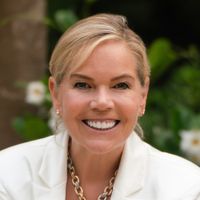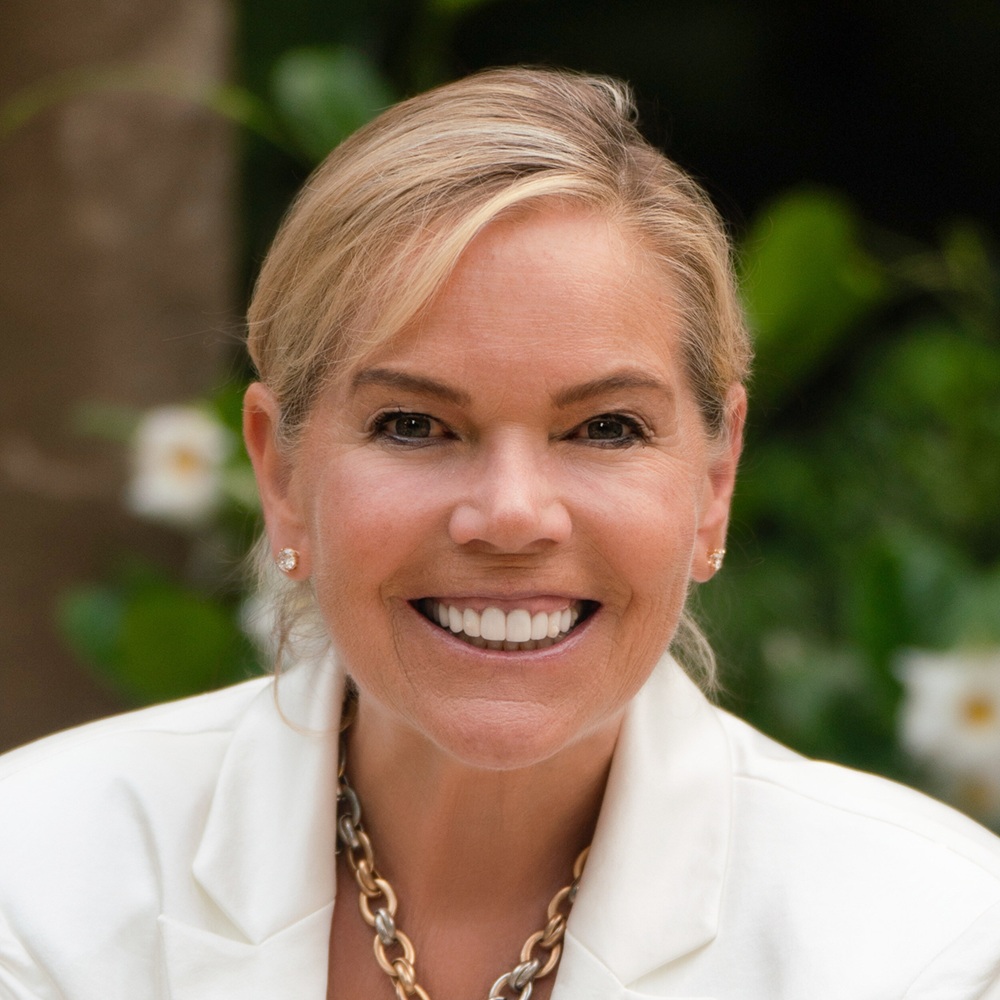Just OK Is Not Good Enough for a Financial Plan
Each phase of your life, starting with single and broke and ending with retirement, comes with its own set of challenges. So, you need more than just a "plan," you need an expert financial fitness coach.


Profit and prosper with the best of Kiplinger's advice on investing, taxes, retirement, personal finance and much more. Delivered daily. Enter your email in the box and click Sign Me Up.
You are now subscribed
Your newsletter sign-up was successful
Want to add more newsletters?

Delivered daily
Kiplinger Today
Profit and prosper with the best of Kiplinger's advice on investing, taxes, retirement, personal finance and much more delivered daily. Smart money moves start here.

Sent five days a week
Kiplinger A Step Ahead
Get practical help to make better financial decisions in your everyday life, from spending to savings on top deals.

Delivered daily
Kiplinger Closing Bell
Get today's biggest financial and investing headlines delivered to your inbox every day the U.S. stock market is open.

Sent twice a week
Kiplinger Adviser Intel
Financial pros across the country share best practices and fresh tactics to preserve and grow your wealth.

Delivered weekly
Kiplinger Tax Tips
Trim your federal and state tax bills with practical tax-planning and tax-cutting strategies.

Sent twice a week
Kiplinger Retirement Tips
Your twice-a-week guide to planning and enjoying a financially secure and richly rewarding retirement

Sent bimonthly.
Kiplinger Adviser Angle
Insights for advisers, wealth managers and other financial professionals.

Sent twice a week
Kiplinger Investing Weekly
Your twice-a-week roundup of promising stocks, funds, companies and industries you should consider, ones you should avoid, and why.

Sent weekly for six weeks
Kiplinger Invest for Retirement
Your step-by-step six-part series on how to invest for retirement, from devising a successful strategy to exactly which investments to choose.
Don’t get me wrong. I’m 100% in favor of the idea of financial planning. And I have nothing but respect for the fee-only fiduciary advisers who do it right.
It’s just that some people view going through a traditional financial planning session with the same level of enthusiasm as getting a root canal. All that annoying prep work you have to do, from listing in painstaking detail all your monthly income and expenses to combing through online IRA statements or worse … drudging through boxes in the attic to amass years of tax forms, banking, mortgage and credit card statements and investment reports.
And after all this work and maybe a few thousand dollars in fees, what do you actually get in return from a typical financial adviser? A big binder full of investment charts and bullet points, a lecture on thriftiness, and pitches for life insurance and investment management services. If you don’t take the bait, you’re sent on your way with an invoice. And that thick binder ends up right back in the attic gathering dust.
From just $107.88 $24.99 for Kiplinger Personal Finance
Become a smarter, better informed investor. Subscribe from just $107.88 $24.99, plus get up to 4 Special Issues

Sign up for Kiplinger’s Free Newsletters
Profit and prosper with the best of expert advice on investing, taxes, retirement, personal finance and more - straight to your e-mail.
Profit and prosper with the best of expert advice - straight to your e-mail.
I don’t think that’s what meaningful financial planning should be about. It’s not just about the numbers presentation followed by a sales pitch. It’s not about static recommendations, because those instantly become outdated when you change jobs (or get laid off), buy a new home, have a child, get a divorce or have to deal with aging parents. Life is fast-moving and dynamic, so your financial plan has to keep up.
Fortunately, a new generation of fiduciary advisers is moving beyond this outdated approach. They’re fee-only professionals who don’t get paid commissions for selling investments or insurance. They think of themselves as holistic financial planners there to provide ongoing advice that includes all the different financial challenges their clients face throughout every stage of their lives. In other words, they have nothing to sell but their ongoing guidance. More like a personal trainer, but instead of working out physically, they coach and motivate you to get in better financial health.
They’re on call to answer questions and calm nerves. And they strictly adhere to the industry equivalent of the Hippocratic oath by committing to acting solely in your best interests.
The attributes of financial fitness
Just as you can improve your physical health by improving your diet, exercising more and reducing exposure to things that can make you sick, you can optimize your financial fitness at different stages of your life by effectively managing these key attributes:
- Income
- Spending
- Investments
- Debts
- Asset protection (insurance)
- Taxes
- Wealth distribution
How you deal with each area will change throughout your life. Some attributes will be more important when you’re just starting your career and trying to make ends meet, while others will become priorities when you start a family or approach retirement.
Each stage presents its own challenges, and the best financial fitness coaches help their clients find ways to bring these often-conflicting attributes into great harmony. Let’s take a look at how these different attributes often present challenges for the vast majority of us who aren’t fortunate enough to be members of the one-percent club.
Single and broke
You’re probably past this age, but your children may not be. When you’re freshly graduated from college and beginning your career, on an often-paltry starting salary, you’re generally stuck with the “money-is-tight” plan. You’re focusing on stretching your income to cover your rent, living expenses, credit card debt and student loan payments. If you’re not living at home, you’ll probably get your first taste of asset protection by signing up for renters and auto insurance.
Retirement is probably the last thing on your mind, but this is the best time to enroll in your employer’s retirement plan and start contributing as much of your salary as you can to take advantage of matching contributions and let time increase your odds of building a substantial nest egg. And if you make pre-tax contributions, you’ll lower your taxable income as well, which could lead to a much-needed tax refund.
Family starters
Everything changes once when you get married and start a family. If you’re both working, the extra joint income may come in handy, but you’ll also be dealing with your combined debts. And once you add a mortgage, child care costs, life insurance and real estate taxes to your expense mix, the idea of saving even more for retirement or starting college saving plans for your children can seem almost impossible. Exercising your vested company stock options may seem like an attractive financial lifeline at this time, but how do you it without getting hit with a huge tax bill?
Mid-career
As you enter your 50s, you’re (hopefully) in your peak earnings years, because certain intangible expenses, such as real estate taxes and auto and home insurance premiums, will probably go up unless you move to a cheaper location. By now your own student loans should be a distant memory, but you may get a sense of deja vu if you have to take out private loans to pay for the exorbitant college costs not covered by your children’s student loans and college savings plans. Now is the time to take a look at all of your retirement savings accounts and estimate whether you may end up with enough of a nest egg that, in combination with Social Security benefits and other income, will let you retire the way you want to.
Pre-retirement and beyond
In your 60s and 70s you’ll face some of your most daunting financial challenges, with costly consequences for making the wrong timing decisions. You’ll need to figure out when it makes the most sense to file for Social Security benefits. Which kinds of supplemental Medicare coverage you’ll need. Whether it makes sense to convert some or all of your 401(k) plan and traditional IRA assets into a Roth IRA. How to minimize the tax impact of a deferred compensation payout. Whether you can afford to retire when you want to or if working a few more years and delaying Social Security until age 70 will significantly boost your retirement income.
This is where real cash flow planning comes in. You may also be worried that a catastrophic illness could drain your savings and questioning the wisdom of buying long-term-care insurance. And you may be pondering the legacy you want to leave to your loved ones and causes you care about and which estate planning vehicles are most suitable for carrying out your wishes.
The role of the financial fitness coach
A holistic-minded, fee-only financial planner can be there to provide guidance and support at each of these life stages and in the many detours along the way. While the initial plan they develop for you may address each of the key financial attributes, the real value they offer is their ongoing availability to check your progress, address new challenges, calm your nerves and motivate you to stick with your plan through thick and thin.
How do you pay for real financial planning?
Some financial fitness coaches charge a few thousand dollars for the initial financial plan, and then they charge a fraction of that amount each year for periodic checkups. Some will charge a yearly retainer for a predefined set of services. Some will offer a subscription model, where you pay a quarterly fee that covers the initial plan, ongoing checkups, and a certain amount of hours every quarter for answering specific questions that come up. Others may charge for the initial plan and then charge by the hour for additional help.
Finding the right personal financial planner
While the ranks of this new generation of qualified financial planners are growing, they’re not very easy to find. If you’re looking for a trusted financial expert who can give you unbiased guidance and support throughout your life, there are online resources that can match you with rigorously vetted fee-only professionals who are embracing this new service model.
Profit and prosper with the best of Kiplinger's advice on investing, taxes, retirement, personal finance and much more. Delivered daily. Enter your email in the box and click Sign Me Up.

With more than 25 years in investor advocacy, Pam Krueger is the founder and CEO of Wealthramp, an SEC-registered adviser matching platform that connects consumers with rigorously vetted and qualified fee-only financial advisers. She is also the creator and co-host of the award-winning MoneyTrack investor-education TV series, seen nationally on PBS, and Friends Talk Money podcast.
-
 5 Investing Rules You Can Steal From Millennials
5 Investing Rules You Can Steal From MillennialsMillennials are reshaping the investing landscape. See how the tech-savvy generation is approaching capital markets – and the strategies you can take from them.
-
 The Tool You Need to Avoid a Post-Divorce Administrative Nightmare
The Tool You Need to Avoid a Post-Divorce Administrative NightmareLearn why a divorce decree isn’t enough to protect your retirement assets. You need a QDRO to divide the accounts to avoid paying penalties or income tax.
-
 When Estate Plans Don't Include Tax Plans, All Bets Are Off
When Estate Plans Don't Include Tax Plans, All Bets Are OffEstate plans aren't as effective as they can be if tax plans are considered separately. Here's what you stand to gain when the two strategies are aligned.
-
 When Estate Plans Don't Include Tax Plans, All Bets Are Off: 2 Financial Advisers Explain Why
When Estate Plans Don't Include Tax Plans, All Bets Are Off: 2 Financial Advisers Explain WhyEstate plans aren't as effective as they can be if tax plans are considered separately. Here's what you stand to gain when the two strategies are aligned.
-
 Counting on Real Estate to Fund Your Retirement? Avoid These 3 Costly Mistakes
Counting on Real Estate to Fund Your Retirement? Avoid These 3 Costly MistakesThe keys to successful real estate planning for retirees: Stop thinking of property income as a reliable paycheck, start planning for tax consequences and structure your assets early to maintain flexibility.
-
 I'm a Financial Planner: These Small Money Habits Stick (and Now Is the Perfect Time to Adopt Them)
I'm a Financial Planner: These Small Money Habits Stick (and Now Is the Perfect Time to Adopt Them)February gets a bad rap for being the month when resolutions fade — in fact, it's the perfect time to reset and focus on small changes that actually pay off.
-
 Social Security Break-Even Math Is Helpful, But Don't Let It Dictate When You'll File
Social Security Break-Even Math Is Helpful, But Don't Let It Dictate When You'll FileYour Social Security break-even age tells you how long you'd need to live for delaying to pay off, but shouldn't be the sole basis for deciding when to claim.
-
 I'm an Opportunity Zone Pro: This Is How to Deliver Roth-Like Tax-Free Growth (Without Contribution Limits)
I'm an Opportunity Zone Pro: This Is How to Deliver Roth-Like Tax-Free Growth (Without Contribution Limits)Investors who combine Roth IRAs, the gold standard of tax-free savings, with qualified opportunity funds could enjoy decades of tax-free growth.
-
 One of the Most Powerful Wealth-Building Moves a Woman Can Make: A Midcareer Pivot
One of the Most Powerful Wealth-Building Moves a Woman Can Make: A Midcareer PivotIf it feels like you can't sustain what you're doing for the next 20 years, it's time for an honest look at what's draining you and what energizes you.
-
 I'm a Wealth Adviser Obsessed With Mahjong: Here Are 8 Ways It Can Teach Us How to Manage Our Money
I'm a Wealth Adviser Obsessed With Mahjong: Here Are 8 Ways It Can Teach Us How to Manage Our MoneyThis increasingly popular Chinese game can teach us not only how to help manage our money but also how important it is to connect with other people.
-
 Looking for a Financial Book That Won't Put Your Young Adult to Sleep? This One Makes 'Cents'
Looking for a Financial Book That Won't Put Your Young Adult to Sleep? This One Makes 'Cents'"Wealth Your Way" by Cosmo DeStefano offers a highly accessible guide for young adults and their parents on building wealth through simple, consistent habits.